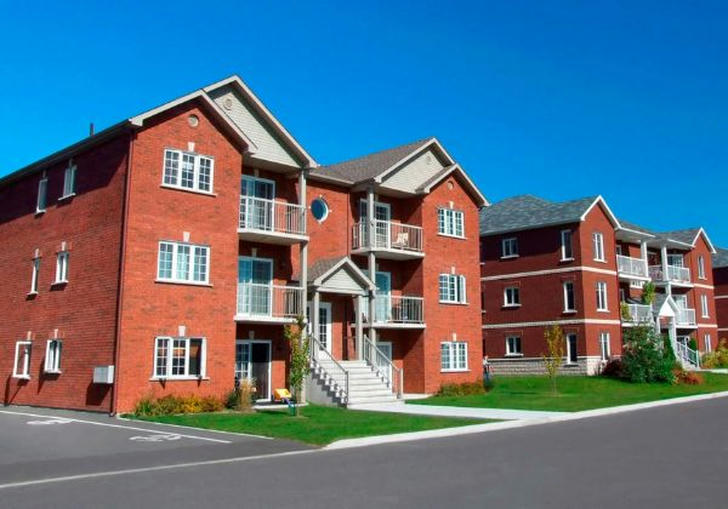Affordable Senior Living: How To Get A Low-Cost Senior Living Community Or Subsidy In The United States?
Finding affordable housing is one of the biggest challenges for seniors on fixed incomes, but there are numerous programs and resources designed to make this easier. Whether you’re searching for a low-cost senior living community or trying to secure housing subsidies, various options are available to help you achieve safe, comfortable, and affordable living. This guide breaks down the best resources for seniors seeking affordable housing in the United States.

Affordable Senior Housing Options
1. Low-Income Senior Apartments and Condos
Many apartment complexes cater specifically to seniors with low incomes, often charging no more than 30% of a senior’s adjusted gross income (AGI). These communities often feature accessible design, a sense of community, and an age-appropriate environment for those aged 55 and older. Key organizations offering such affordable housing include:
Volunteers of America: Operating over 500 properties across 42 states, Volunteers of America provides diverse housing options for seniors, offering both independence and a supportive community.
Good Samaritan Society: This organization offers affordable apartments for seniors aged 50 and older, regardless of religious affiliation, promoting inclusive, supportive environments.
HumanGood: With 100 affordable senior communities across five states, HumanGood focuses on providing safe, budget-friendly housing for seniors aged 55 and older.
Mercy Housing: As a national nonprofit, Mercy Housing works to provide affordable housing to low- and moderate-income families, including seniors, in communities across the U.S.
These housing options give seniors the opportunity to live independently while managing their housing costs effectively.
2. HUD Housing Programs
The U.S. Department of Housing and Urban Development (HUD) administers several key programs designed to assist low-income seniors with finding affordable housing:
Section 8 Housing Choice Vouchers: This program provides vouchers to low-income seniors, which they can use to pay for rent in private housing. Seniors apply through local Public Housing Agencies (PHAs), which directly pay landlords on behalf of tenants. This gives seniors flexibility in choosing housing while ensuring that rent remains affordable.
Section 202 Supportive Housing for the Elderly: Specifically designed for seniors aged 62 and older, this program provides affordable housing with rent typically capped at 30% of the senior’s income. In addition to affordable rent, residents benefit from supportive services like transportation, cleaning, and sometimes personal care services.
These HUD programs provide essential support to seniors, allowing them to maintain their independence in a safe, affordable environment.
3. State and Local Programs
Beyond federal assistance, many states have their own programs that provide additional subsidies or housing assistance for seniors. These programs often focus on specific regional needs, making them a great option for seniors who may not meet the eligibility requirements of federal programs like Section 8 or Section 202.
Tip: To find local housing resources, check with your state's Department of Housing and Urban Development or contact local Area Agencies on Aging for advice on available subsidies or housing assistance programs in your area.
4. Virtual Retirement Communities
For seniors who prefer to remain in their homes, virtual retirement communities offer a low-cost alternative to traditional senior living. These organizations provide a network of services, including transportation, social activities, and home maintenance help, for an annual fee that typically ranges from $125 to $450.
These virtual communities help seniors maintain independence while providing the support needed to navigate daily challenges. The services promote a sense of community and ensure that seniors stay connected to their neighbors and local resources.
Example: Circle of Friends in Colorado offers virtual community services for seniors, ensuring they have access to a range of local social events, volunteer opportunities, and resources that allow them to live independently but with support close at hand.
5. Adult Family Homes or Adult Foster Care
Adult family homes, also known as adult foster care, are small group homes that provide affordable housing for seniors. These homes typically house 3–6 seniors in a home-like environment where they share common spaces, but each has their private room. These homes offer personalized care, and residents receive help with daily activities like meals, cleaning, and medication management.
Adult family homes are often more affordable than traditional assisted living facilities and can be a great option for seniors who require some assistance but do not need full-time medical care.

How to Apply for Assistance
Securing affordable senior housing requires a bit of preparation, but knowing where to apply can make all the difference:
1.Determine Eligibility: Review the income and age requirements for various programs such as Section 8 or Section 202. Many of these programs are designed for seniors who meet specific financial criteria.
2.Contact Local Agencies: Reach out to your local Public Housing Agency (PHA) or nonprofit housing providers for guidance. They can help you identify the programs available in your area and assist with the application process.
3.Complete Applications: Be sure to fill out all the necessary paperwork accurately. Some programs, especially Section 8 and Section 202, may have long waiting lists, so it's important to apply as soon as possible.
Tip: Keep in mind that the application process can take time, and many programs have waitlists. It’s important to apply early and consider multiple options to ensure you’re covered.
Conclusion: Affordable Housing for Seniors is Within Reach
Finding an affordable senior living community or securing a housing subsidy is entirely possible with the right information and resources. Whether you’re interested in low-income apartments, HUD programs, or a virtual retirement community, the U.S. offers a wealth of options to help seniors maintain independence while ensuring their housing remains affordable.
By researching your local and state options, contacting the appropriate agencies, and applying for programs that fit your needs, you can find a home that supports your lifestyle without breaking the bank. Remember, securing affordable housing is a journey—take it one step at a time, and you’ll find the right solution for you.
